Mississippi Cannabis News
Recreational Marijuana | Procs, Cons, Arguments, & Controversy
Published
5 months agoon
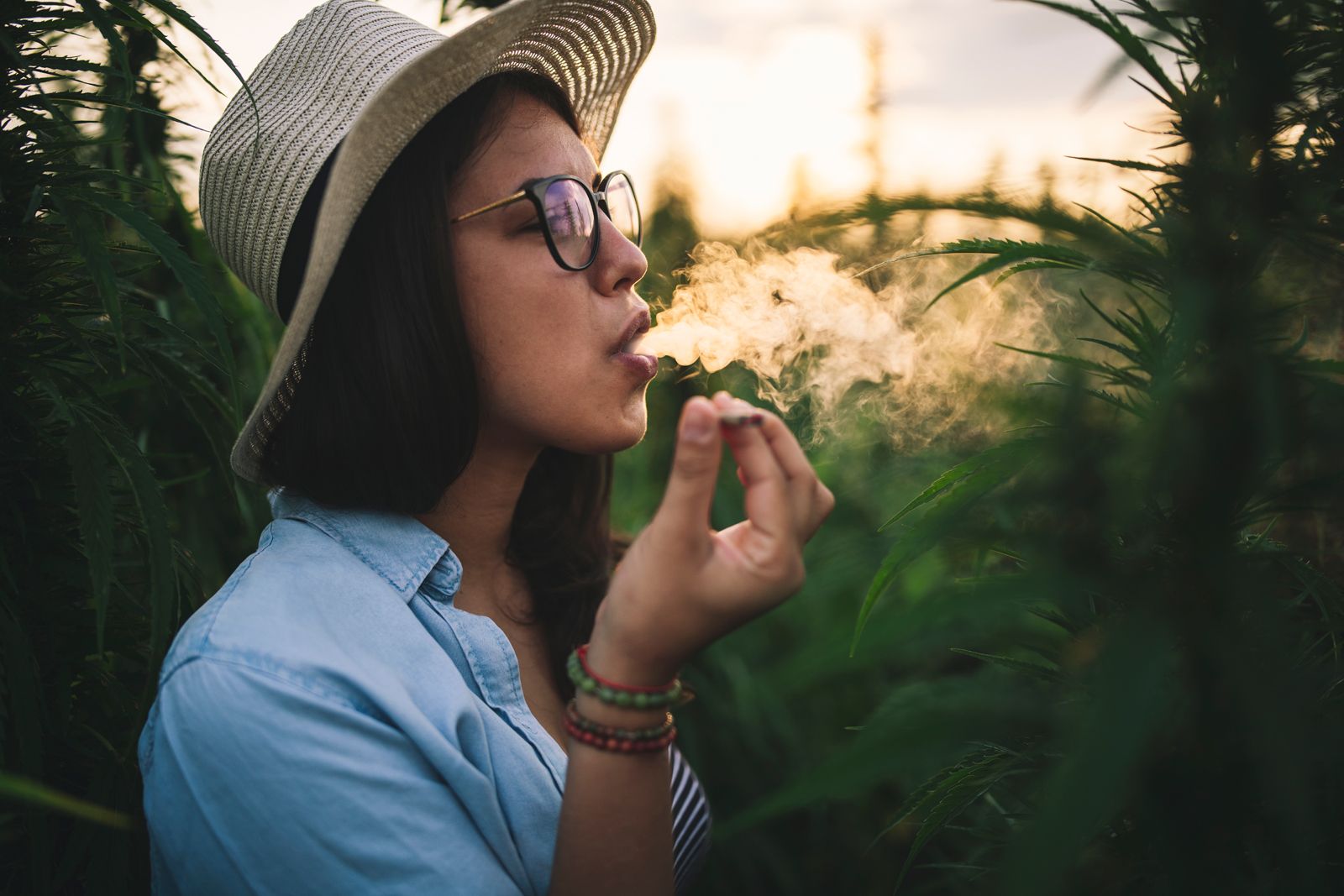
Table of Contents
Table of Contents
More than half of US adults have tried marijuana, despite it being an illegal drug under federal law. Recreational marijuana, also known as adult-use marijuana, was first legalized in Colorado and Washington in 2012. [43]
Terminology
Pot. Weed. Ganja. Mary Jane. There are more than a thousand slang terms in the English language to refer to marijuana. A 1943 article in TIME magazine called it muggles, mooter, and bambalacha, and referred to marijuana cigarettes as goof-butts and giggle-smokes. According to the Oxford English Dictionary, use of the word “marijuana” (also written as “marihuana” in older references) came to popularity in the United States in the 1930s as an alternative to the more familiar terms “cannabis” and “hemp.” [88][89][90]
What do you think?
Explore the ProCon debate
Cannabis, the scientific name for marijuana, is a plant that has three species (or strains): cannabis indica, cannabis sativa, and the less common cannabis ruderalis. Marijuana and hemp are both cannabis plants, but marijuana contains higher levels of THC (delta-9-tetrahydrocannabinol), the primary psychoactive ingredient that causes people to get high. Hemp can be cultivated for industrial uses such as rope and burlap fabric, or for a low-THC, non-psychoactive, medicinal product. The words “cannabis” and “marijuana” are frequently used interchangeably, as are the words “recreational” and “adult-use.”[33][123][245]
Marijuana legalization refers to the practice of allowing and regulating the production, distribution, sale, and possession of cannabis so that marijuana use within the established rules is no longer a crime. There are different models of legalization, including allowing people to grow their own marijuana, nonprofit co-ops, and for-profit commercialization with retail sales. [33][143][150]
Early History of Cannabis in the United States
While references to marijuana as a popular medicine are found in Chinese writings dating back to 2900 BC, the marijuana plant made its arrival in North America in 1611 thanks to the Jamestown settlers. Early colonists were required to grow hemp. George Washington and Thomas Jefferson grew hemp for clothing, rope, and fishing nets in the 1770s. By the 1800s, doctors were using cannabis extracts for various ailments, and marijuana was listed in the United States Pharmacopeia as a treatment for opiate addiction, leprosy, cholera, and more. In the mid-1800s, hemp was the third-largest crop in the United States, behind cotton and tobacco. [99][121][177][178][182][246]
Trend towards Outlawing Marijuana, Early 1900s
At the start of the 20th century, drugs were largely unregulated: beverages including Coca-Cola contained cocaine, heroin was sold as an over-the-counter medicine, and cannabis was readily available in tinctures. The 1906 Pure Food and Drug Act, which specifically mentioned cannabis indica, kicked off drug regulation in the United States by requiring ingredient labeling in drugs and food. The 1914 Harrison Narcotics Act, which regulated and taxed opiates and cocaine, was soon followed by the 1918 prohibition of alcohol.[189][190][191][192]
Mexican immigrants entered the United States in record numbers following the 1910 Mexican Revolution. They reportedly introduced Americans to smoking marijuana for recreational purposes. Around the same time, sailors and West Indian immigrants brought marijuana from the Caribbean into North America via New Orleans. In the 1920s and 1930s, recreational cannabis use became associated with the jazz music, and the famous trumpet player Louis Armstrong was an early advocate for marijuana. [179][187][188]
The rise of the word “marijuana” (from the Spanish “marihuana”) as a replacement for the then-familiar terms cannabis and hemp is often attributed to prohibitionists, including Harry Anslinger, the first commissioner of the Federal Bureau of Narcotics. Anslinger worked to associate cannabis with demeaning or racist stereotypes about Mexican immigrants and other minorities. [155][163][169][175][179][184][193][198]
Following the 1933 repeal of alcohol prohibition, Anslinger focused on fighting marijuana, which had already been banned in 29 states by 1931. He tried to turn public opinion against cannabis with inflammatory rhetoric: “There are 100,000 total marijuana smokers in the U.S., and most are Negroes, Hispanics, Filipinos and entertainers. Their Satanic music, jazz and swing result from marijuana use. This marijuana causes white women to seek sexual relations with Negroes, entertainers and any others.” His efforts were aided by a 1936 anti-marijuana propaganda film, Reefer Madness, as well as by newspaper publisher William Randolph Hearst, who famously printed articles designed to foster fear of the drug. [169][194][195][196][197][198]
Marijuana Became Illegal. 1937
The 1937 Marihuana Tax Act effectively outlawed cannabis use in the United States by adding strict regulations and prohibitive taxes that made marijuana too expensive to buy or sell legally. It became a federal crime to possess marijuana, including hemp, without having the required tax stamps. Importers and manufacturers of marijuana were required to pay an annual tax of $24 (more than $400 in 2018 dollars). Transfers of marijuana to non-registered people were subject to a tax of up to $100 per ounce (more than $1,700 in 2018 dollars). Legal transfers of marijuana involved special order forms and strict record keeping. Violations of the Act were subject to fines of up to $2,000 ($34,260 in 2018 dollars) and five years in prison. In October 1937, Samuel Caldwell became the first marijuana seller convicted under US federal law and he was sentenced to four years of hard labor at Leavenworth Penitentiary. [178][194][199][200][201][202][203][204][205]
Marijuana, 1938 – the 1960s
In 1938, New York City Mayor Fiorella LaGuardia directed the New York Academy of Medicine to research marijuana. Their report became one of the first comprehensive reviews of the drug’s impact. The 1944 LaGuardia report concluded that “The practice of smoking marihuana does not lead to addiction… Marihuana is not the determining factor in the commission of major crimes… The publicity concerning the catastrophic effects of marihuana smoking in New York City is unfounded.” The findings infuriated Commissioner Anslinger, who denounced the report as a “government-printed invitation to youth and adults – above all teenagers – to go ahead and smoke all the reefers they feel like.” The report did not alter federal marijuana policy. [206][207][208][209][210]
Marijuana remained popular with musicians, artists, writers, and others throughout the 1940s and 1950s. However, marijuana use became more widespread among upper-middle class white Americans and common on college campuses in the 1960s alongside the rise of the hippie counterculture and Vietnam war protests. Efforts to re-legalize marijuana grew stronger. The 1965 arrest of Timothy Leary, a Harvard psychologist who experimented with hallucinogens and became a counterculture icon, led to the Marihuana Tax Act being overruled by the Supreme Court in 1969. The court agreed with Leary’s argument that the law violated his fifth amendment right against self-incrimination because he wouldn’t have been able to follow the law’s registration requirements without admitting to breaking state marijuana bans, thus incriminating himself. [33][177][194][209][211]
President Nixon and the 1970 Controlled Substances Act
In 1970, President Nixon signed the bill that makes marijuana illegal under federal law to this day. As a party to the 1961 Single Convention Treaty, the United States was required to limit marijuana use “exclusively to medical and scientific purposes.” That obligation was implemented with the 1970 Controlled Substance Act (CSA). Under the CSA, drugs were put into one of five categories based on their medical use and potential for abuse. Marijuana was placed in the most restrictive category, Schedule I, which was designated for “drugs with no currently accepted medical use and a high potential for abuse,” along with heroin and LSD. Drugs such as cocaine and methamphetamine were placed in the less restrictive Schedule II. [139][177][209][212][213]
Marijuana’s placement in Schedule I was supposed to be temporary pending a federal review by the newly formed National Commission on Marihuana and Drug Policy (more commonly known as the Shafer Commission). The commission’s 1972 report concluded that “neither the marihuana user nor the drug itself can be said to constitute a danger to public safety,” and recommended that marijuana possession for personal use no longer be considered a criminal offense. President Nixon’s response was, “[R]eading it did not change my mind. I oppose the legalization of marijuana.” Regardless of the commission’s recommendation, marijuana was left in Schedule I and remains there today. [169][214][224][225][226]
NORML, Holland, and Decriminalization
The same year that the CSA was enacted, 1970, the National Organization for the Reform of Marijuana Laws (NORML) was founded to advocate for the end of marijuana prohibition. Between 1973 and 1981, the organization successfully fought to get minor marijuana offenses decriminalized in 11 states and lower penalties for marijuana possession in other states. The organization, headquartered in D.C., is still in operation. [209][217]
A policy of decriminalization was adopted in the Netherlands in 1976 for what the country deemed “soft drugs,” which included cannabis. Under the Dutch Opium Act, possession of less than five grams of marijuana is presumed to be for personal use and is therefore not prosecuted. The law also allows for coffee shops where people are able to buy and use cannabis. Decriminalization of marijuana means people don’t get arrested for possessing small amounts of marijuana, but instead may be required to pay a civil fine rather than facing criminal charges. This is a step towards loosening marijuana prohibition, but is not considered to be legalization. Some marijuana legalization opponents advocate for decriminalization instead. [216][218][219]
Marijuana at the End of the 20th Century
In the 1980s, a rise in parent groups concerned about the increase in teen drug use coincided with the election of President Ronald Reagan, who declared a “war on drugs” in 1982, echoing the phrase popularized by Nixon. First Lady Nancy Reagan spearheaded the “Just Say No” campaign aimed at convincing kids not to use drugs and seeking to overturn lenient drug laws. Parent lobbying groups such as the National Federation of Parents for Drug-Free Youth, now known as National Family Partnership, established a presence in D.C., to advocate for anti-drug legislation. Throughout the 1980s, federal and state criminal penalties for marijuana became stricter and mandatory-minimum sentences were established.[169][177][220][221][222][223]
Marijuana arrests increased dramatically in the 1990s, more than doubling between 1990 and 2002, from 327,000 to 697,000 annually. In New York City, marijuana arrests jumped 882% in that period. A report from the Sentencing Project stated, “Our analysis indicates that the ‘war on drugs’ in the 1990s was, essentially, a ‘war on marijuana.’” At the same time, public opinion was shifting in favor of medical marijuana. In 1996, California became the first state to legalize marijuana for medical purposes when voters passed Proposition 215. By the end of 2000, eight states had legalized medical marijuana. By 2017, 29 states and Washington, DC, had legalized the drug for medical use. [227]
Recreational Marijuana Legalization at the State-Level
Although a 2010 California proposition to legalize adult-use marijuana failed, measures to legalize recreational marijuana were on the ballots in three states two years later, in Nov. 2012. While Oregon voters turned down the measure, Colorado and Washington became the first two U.S. states to legalize adult-use marijuana. [228][229][230][231][232]
Support for legalizing recreational marijuana increased as more people, including many who never tried marijuana, believed that marijuana use was not as dangerous as the government reported and not a gateway to using hard drugs. People were also becoming unhappy with the sheer cost of enforcing marijuana laws and the growing prison populations, especially among minority populations. Plus, more people were exposed to marijuana and “out-in-the-open” marijuana users thanks to liberalized marijuana policies in medical marijuana states. Younger generations were increasingly more likely to support legalization. [180][215]
In Nov. 2014, Oregon and Alaska passed recreational marijuana ballot measures following the same model as Washington and Colorado, which is a for-profit commercial marijuana industry that allows retail sales. That same year, Washington, DC, voters approved an initiative that allowed home cultivation and personal possession but not retail sales. [143][235][236][237][238]
In the Nov. 2016 election, California, Maine, Massachusetts, and Nevada all passed legal recreational ballot measures that follow the commercialization model, although retail sales in Maine were put on hold by the state legislature. [239][240][241][242]
In Jan. 2018, Vermont became the first state to legalize marijuana by way of the state legislature rather than by ballot initiative, enacting a law that did not allow for retail sales. [243] [244] Four states legalized recreational marijuana in the Nov. 2020 election: Arizona, Montana, New Jersey, and South Dakota. Two states also legalized medical marijuana, Mississippi and South Dakota, with the latter being the first state to legalize both medical and recreational marijuana in the same election (though a court battle, ending on Nov. 24, 2021, would rule recreational marijuana still illegal in the state because of the way the ballot initiative was written). Taken as a whole, all six marijuana measures on the ballot in the Nov. 2020 election passed. Steve Hawkins, JD, Executive Director of the Marijuana Policy Project, stated, “With the passage of these initiatives, one-third of the population now lives in jurisdictions that have legalized cannabis for adult use, and 70% of all states have embraced cannabis for medical use.” [256][265]
Recreational marijuana was on Nov. 8, 2022 midterm ballots in five states: Arkansas, Maryland, Missouri, North Dakota, and South Dakota. The measures failed in three (Arkansas, North Dakota, and South Dakota). Maryland and Missouri became the 20th and 21st states to legalize marijuana for adult use. [269][270][271][272][273][274]
Federal Response to State Legalization
Concerns about how the federal government would react to the new laws were lessened somewhat with a 2013 communication from President Obama’s Justice Department known as the Cole memo. Deputy Attorney General James M. Cole stated that as long as states had good regulations, then the federal government would hold off on challenging marijuana legalization. As a result, marijuana retail stores opened in Colorado on Jan. 1, 2014, allowing adults 21 and older to purchase cannabis that is taxed and regulated under state law. Washington’s marijuana shops opened on July 8, 2014. [209][233][234]
The election of President Trump in 2016 and his appointment of Jeff Sessions as U.S. Attorney General in 2017 raised new questions about whether the federal government would crack down on states that were legalizing adult-use marijuana. On Jan. 4, 2018, Sessions issued a memo that undid the hands-off policy enacted by the Obama Administration, and instructed federal prosecutors to determine for themselves when to prosecute marijuana activities. [176][181]
On June 7, 2018, Senators Elizabeth Warren (D-MA) and Cory Gardner (R-CO) introduced the Strengthening the Tenth Amendment through Entrusting States (STATES) Act, which they said “ensures that each State has the right to determine for itself the best approach to marijuana within its borders.” Asked about the legislation, President Trump said, “I support Senator Gardner. I know exactly what he’s doing. We’re looking at it. But I probably will end up supporting that, yes.” The bill did not advance. [247][248]
President Trump signed the Agriculture Improvement Act of 2018 (known as the Farm Bill) into law on Dec. 20, 2018. This law legalized industrial hemp that contains less than 0.3% THC by removing it from the Controlled Substances Act. Cannabidiol (CBD) and tetrahydrocannabinol (THC) remain federally illegal to include in food or health products without FDA approval, even if they were derived from hemp.[253]
On Dec. 4, 2020, the US House passed a marijuana decriminalization bill (228-164) that would remove marijuana from the Controlled Substances Act, as well as add a 5% tax on marijuana to help people most affected by marijuana criminalization and to fund community and small business grants. Though the bill did not pass the Republican-controlled Senate, it was the first time either chamber has passed such an act. The legislation was led by Representative Jerry Nadler (D-NY) with Senator and Vice-President-elect Kamala Harris (D-CA). [257]
In a largely partisan vote, the US House of Representatives voted 220 to 204 to decriminalize marijuana on Apr. 1, 2022. Tom McClintock (R-CA), Brian Mast (R-FL), and Matt Gaetz (R-FL) crossed party lines to support the bill, while Henry Cuellar (D-TX) and Chris Pappas (D-NH) voted against decriminalization. If passed by the Senate, the bill “will prevent federal agencies from denying federal workers security clearances for cannabis use, and will allow the Veterans’ Administration to recommend medical marijuana to veterans living with posttraumatic stress disorder, plus gains revenue by authorizing a sales tax on marijuana sales” and “expunge… the record of people convicted of non-violent cannabis offenses.” However, neither the House bill nor a similar bill in the Senate garnered enough Republican votes to be passed. [267]
On Oct. 6, 2022, President Joe Biden announced he would pardon thousands of people with federal and DC marijuana simple possession convictions and review marijuana’s federal drug scheduling. In a Twitter thread on @potus and video on @whitehouse, Biden stated: “Sending people to jail for possessing marijuana has upended too many lives – for conduct that is legal in many states. That’s before you address the clear racial disparities around prosecution and conviction. Today, we begin to right these wrongs. I’d also like to note that as federal and state regulations change, we still need important limitations on trafficking, marketing, and underage sales of marijuana. As I’ve said before, no one should be in jail just for using or possessing marijuana. Today, I’m taking steps to end our failed approach.” Biden continued, “No one should be in jail just for using or possessing marijuana. It’s legal in many states, and criminal records for marijuana possession have led to needless barriers to employment, housing, and educational opportunities. And that’s before you address the racial disparities around who suffers the consequences. While white and Black and brown people use marijuana at similar rates, Black and brown people are arrested, prosecuted, and convicted at disproportionate rates.” The White House Twitter account added, “Additionally, @POTUS asked @SecBecerra and the Attorney General to initiate the process of reviewing how marijuana is scheduled under federal law. Marijuana is currently classified at the same level as heroin – and above fentanyl.”[268][269]
A letter dated Aug. 29, 2023 from the Department of Health and Human Services to Anne Milgram, Administrator of the Drug Enforcement Administration (DEA), was leaked to Bloomberg News. The letter calls for rescheduling marijuana as a Schedule III drug under the Controlled Substances Act. The DEA confirmed receipt of the letter to Bloomberg News and indicated that the department would now conduct its own review based on the recommendation. Marijuana is currently a Schedule I drug (grouped with heroin, LSD, and ecstasy). Schedule III drugs (like ketamine) may be obtained with a prescription. [275]
International Laws
As of Dec. 15, 2021, three countries have fully legalized recreational marijuana: Malta (2021), Canada (2018), and Uruguay (2013). Luxembourg plans to legalize according to a statement released on Oct. 22, 2021. [258][261][264][266]
In a handful of other countries, including but not limited to Georgia, Mexico, and South Africa, adult-use marijuana is decriminalized, meaning possession and consumption of marijuana are legal, but selling or buying is illegal. Some countries with decriminalized marijuana allow cultivation, others do not.[259][260][262][263]

Author: mscannabiz.com
MScannaBIZ for all you Mississippi Cannabis News and Information.
You may like
-
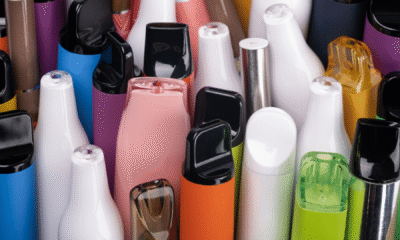

Dozen arrested after south Mississippi bust for illegal sales to underage customers
-
US marijuana laws explained as Donald Trump reveals plans for change
-
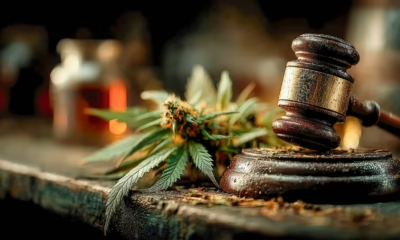

D.C. board rejects ANC 5A challenge to new medical cannabis retailer
-
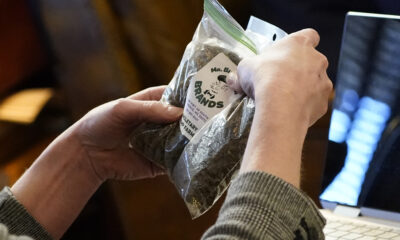

AG opinion on hemp triggers legal chaos for sellers, consumers
-
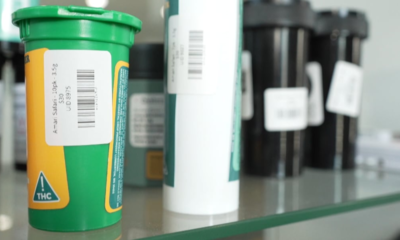

Mississippi Medical Marijuana Association pushing for policy changes
-
Mississippi Cannabis Program Adding 50 Patient IDs Per Day – Ganjapreneur
Mississippi Cannabis News
Dozen arrested after south Mississippi bust for illegal sales to underage customers
Published
10 hours agoon
September 14, 2025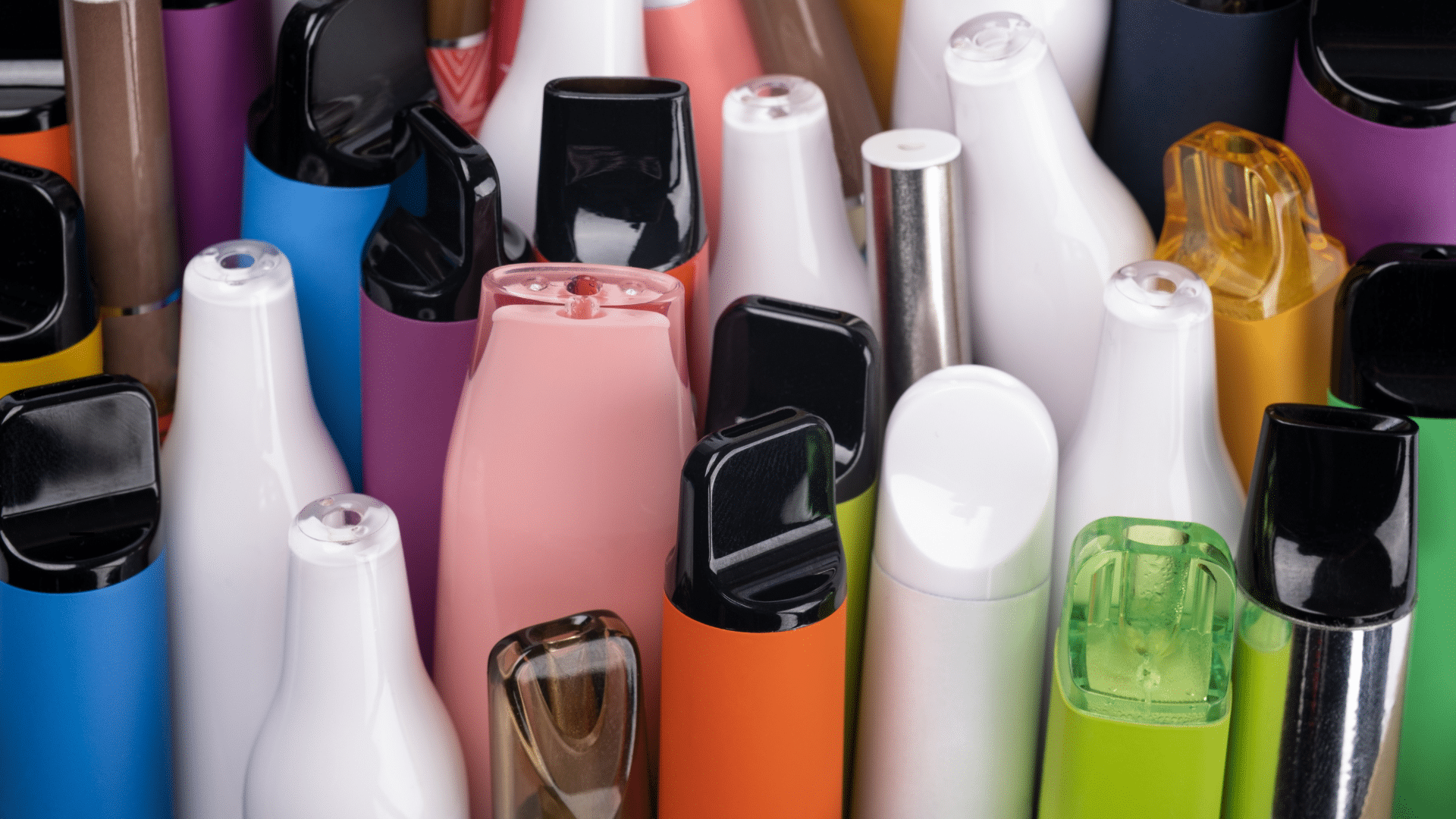
An investigation into south Mississippi businesses selling “alcohol, dangerous illegal vapes, THC edibles,” and other age-restricted or illegal items to underage customers has resulted in at least a dozen arrests with more possible, according to law enforcement.
An announcement by the Perry County Sheriff’s Office said deputies began an investigation in early 2024 after fielding complaints that some businesses in the county were purposely allowing individuals under the age of 21 to purchase age-restricted products.
Sheriff Jacob Garner said as the investigation unfolded, it quickly became clear that the issue was not restricted to Perry County. Law enforcement in nearby Forrest, Lamar, Marion, Greene, Jefferson Davis, and Jones counties had received similar complaints about businesses in their jurisdictions.
Local agencies teamed up with the U.S. Drug Enforcement Agency for over a year’s worth of identifying subjects, initiating traffic stops, and fielding more calls for service. It culminated on Sept. 11 after 20 search warrants were carried out, with 12 individuals being arrested for their involvement in the businesses selling alcohol, tobacco, and THC to minors.
RELATED: Parents urged to talk with students about tobacco risks
“Anyone who chooses to open a business in Perry County for the purpose of selling illegal narcotics, vapes, or THC products to children or adults will be arrested and prosecuted,” Garner said. “These items – disguised as safe or legal – are destroying lives and endangering the health and safety of our citizens. Business owners profiting off the harm of our children and adults in our county will be prosecuted to the fullest extent of the law.”
Garner added that many of the defendants, while operating in different counties, were working in tandem. The Mississippi Bureau of Narcotics, the Mississippi Bureau of Investigation, and the Mississippi Highway Patrol aided in the investigation that remains active.
The following list of arrests and charges has been announced by the involved law enforcement agencies:
- Khaled Alhamidi, 55, of Petal: Two counts of aggravated trafficking of a controlled substance, trafficking while in possession of a firearm, and conspiracy to sell a controlled substance.
- Akram Alhamidi, 25, of Petal: Two counts of aggravated trafficking of a controlled substance, trafficking while in possession of a firearm, and conspiracy to sell a controlled substance.
- Omar Obaid, 40, of Hattiesburg: Two counts of aggravated trafficking of a controlled substance.
- Gaizan Abubaker, 37, of Houma, La.: Two counts of aggravated trafficking of a controlled substance.
- Rami Selah, 32, of Petal: Two counts of aggravated trafficking of a controlled substance, trafficking of a controlled substance while in possession of an enhanced firearm.
- Bassel Saleh, 53, of Petal: Two counts of aggravated trafficking of a controlled substance.
- Mark Shaibi, 24, of Petal: Two counts of aggravated trafficking of a controlled substance, trafficking of a controlled substance while in possession of a firearm.
- Gabr Al-Gabri, 36, of Petal: Two counts of aggravated trafficking of a controlled substance, trafficking of a controlled substance while in possession of an enhanced firearm.
- Basel Rashad, 30, of Petal: Two counts of aggravated trafficking of a controlled substance, trafficking while in possession of a firearm.
- Anmed Elgabry, 30, of Petal: Two counts of aggravated trafficking of a controlled substance, trafficking of a controlled substance while in possession of an enhanced firearm.
- Mohammed Riyadh, 31, of Hattiesburg: Two counts of aggravated trafficking of a controlled substance.
- Ahmedou Mohamedlaamar, 22, of Perry County: Aggravated trafficking of a controlled substance.

Author: mscannabiz.com
MScannaBIZ for all you Mississippi Cannabis News and Information.
Mississippi Cannabis News
US marijuana laws explained as Donald Trump reveals plans for change
Published
3 days agoon
September 12, 2025
Donald Trump is reportedly looking at reclassifying marijuana as a less dangerous drug in the US.
According to an article in the Wall Street Journal, the 79-year-old president is ‘looking at’ making a huge change, which would make it easier to buy and sell weed, making the multibillion-dollar industry more profitable.
The publication’s sources claimed that during a recent fundraiser held at his New Jersey golf club, where tickets for the event went for a whopping $1 million each, the Republican leader first spoke of the potential plans.
He allegedly said he was ‘looking at’ possibly changing the classification of marijuana from a Schedule I controlled substance to a Schedule III substance.
In simple terms, this doesn’t mean it would make the drug completely legal across the US, but it would help ease restrictions on it.
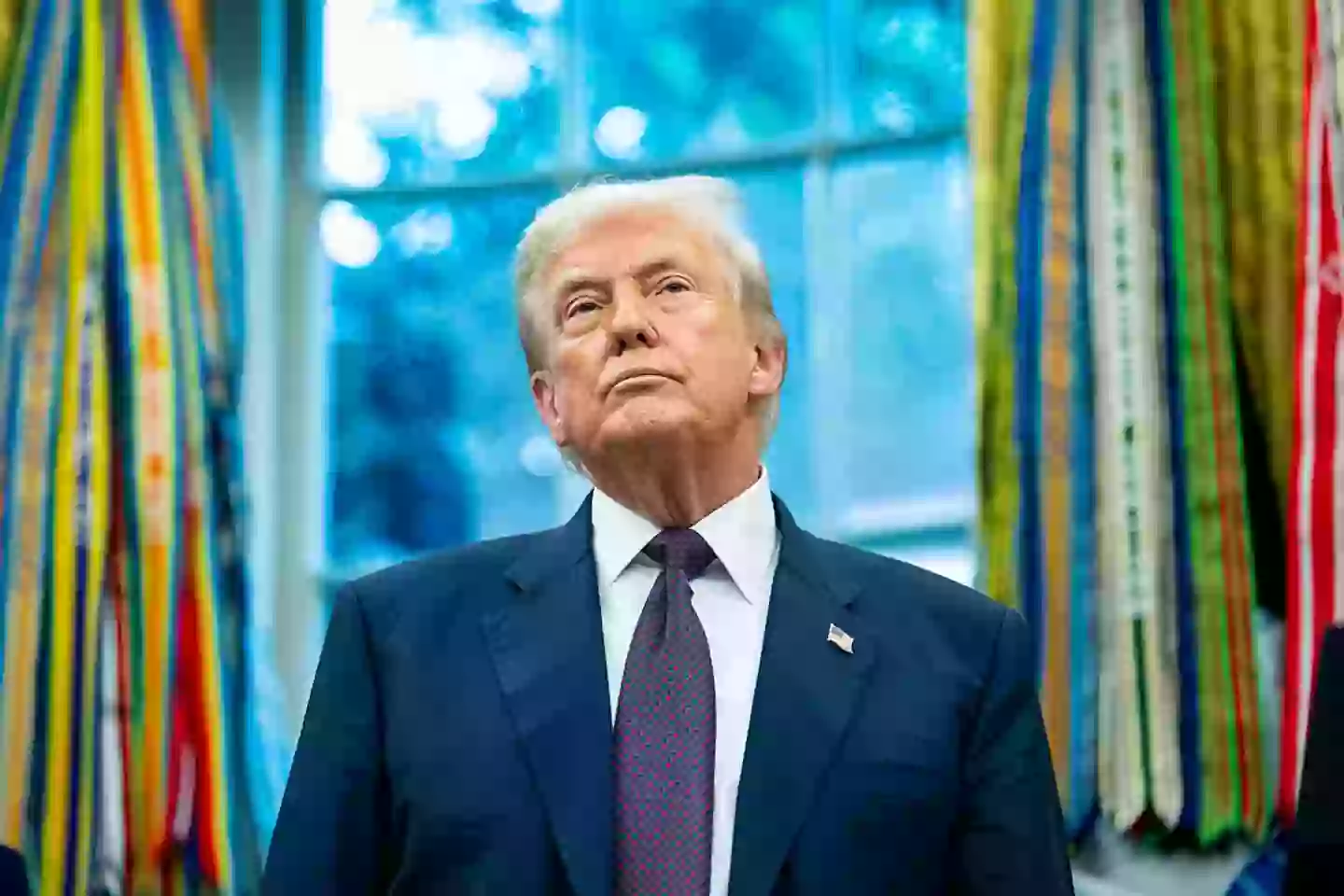
Donald Trump is reportedly considering whether to reclassify marijuana in the US (Bloomberg/Getty Images)
At the event, speaking of tweaking the federal restrictions for the drug, Trump allegedly said: “We need to look at that. That’s something we’re going to look at.”
Then, according to The Telegraph, speaking at a press conference on Monday, the US president affirmed: “We’re looking at reclassification, and we’ll make a determination over, I’d say, the next few weeks.”
He reportedly added that the decision is ‘very complicated’ – so, let’s break it down.
How do US marijuana laws work?
At a federal level, marijuana remains illegal in the US as per the 1970 Controlled Substances Act, however, many states have made their own rules for cannabis use.
As we mentioned earlier, it’s federally classified as a Schedule I drug – this means that federal law considers it to have a ‘high potential for abuse’ and ‘no currently accepted medical use in treatment in the United States’.
But, despite its federal classification, 24 states plus the District of Columbia have fully legalised weed, meanwhile others have opted to only allow it for medicinal purposes.
Cannabis legalisation in individual states can be done in a number of ways, ranging from fully illegal to legal for both medicinal and recreational use.
If you’re in a state that has completely legalised recreational marijuana and you’re 21 or older, you have the right to use cannabis products for your own personal enjoyment.
However, this doesn’t always mean it’s legal to purchase – confusing, I know.
For example, while it’s illegal to buy marijuana in Washington, DC, it’s legal for anyone 21 and older to possess up to two ounces of it and grow up to six marijuana plants in the district.
So essentially, it’s all down to the state you’re in and their specific regulations.
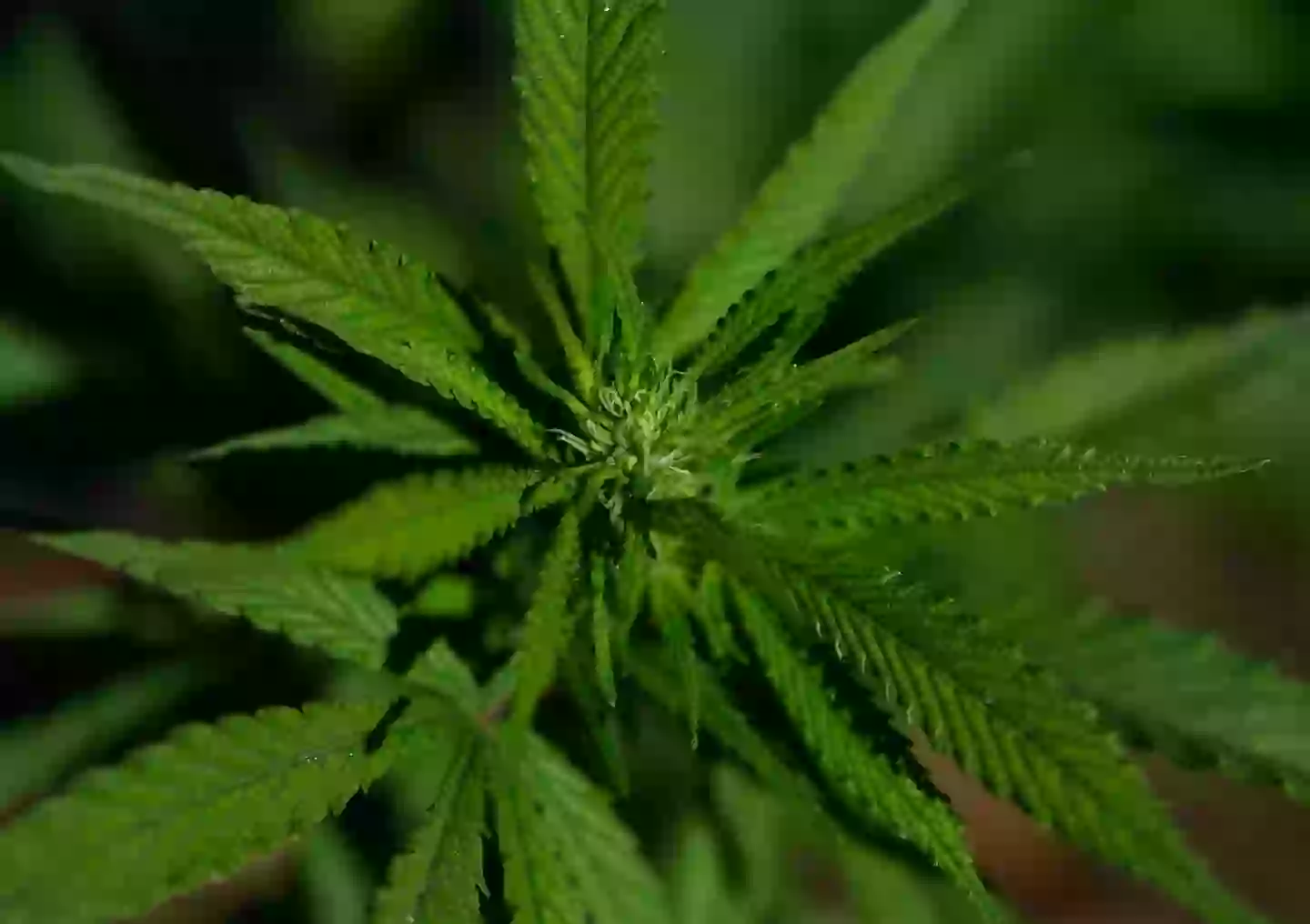
America’s cannabis laws can be a tricky subject to wrap your head around (Justin Sullivan/Getty Images)
What would happen if marijuana became a Schedule III drug?
If Trump were to go ahead and reclassify marijuana as a Schedule III drug, this would be a pretty big change up and down America.
According to the US government’s website, Schedule III drugs are defined as drugs ‘with a moderate to low potential for physical and psychological dependence’ and their ‘abuse potential is less than Schedule I and Schedule II drugs’.
Some examples of Schedule III drugs are products containing less than 90 milligrams of codeine per dosage unit, such as Tylenol with codeine, ketamine, anabolic steroids, and testosterone.
Meanwhile, Schedule I drugs are defined as drugs with no currently accepted medical use and a high potential for abuse.
Some examples include heroin, LSD, ecstasy, and as of right now, marijuana.
It’s important to note that the switch up would not make marijuana completely legal – it would just help ease restrictions and create more opportunities for medical uses and possible tax breaks for marijuana companies.
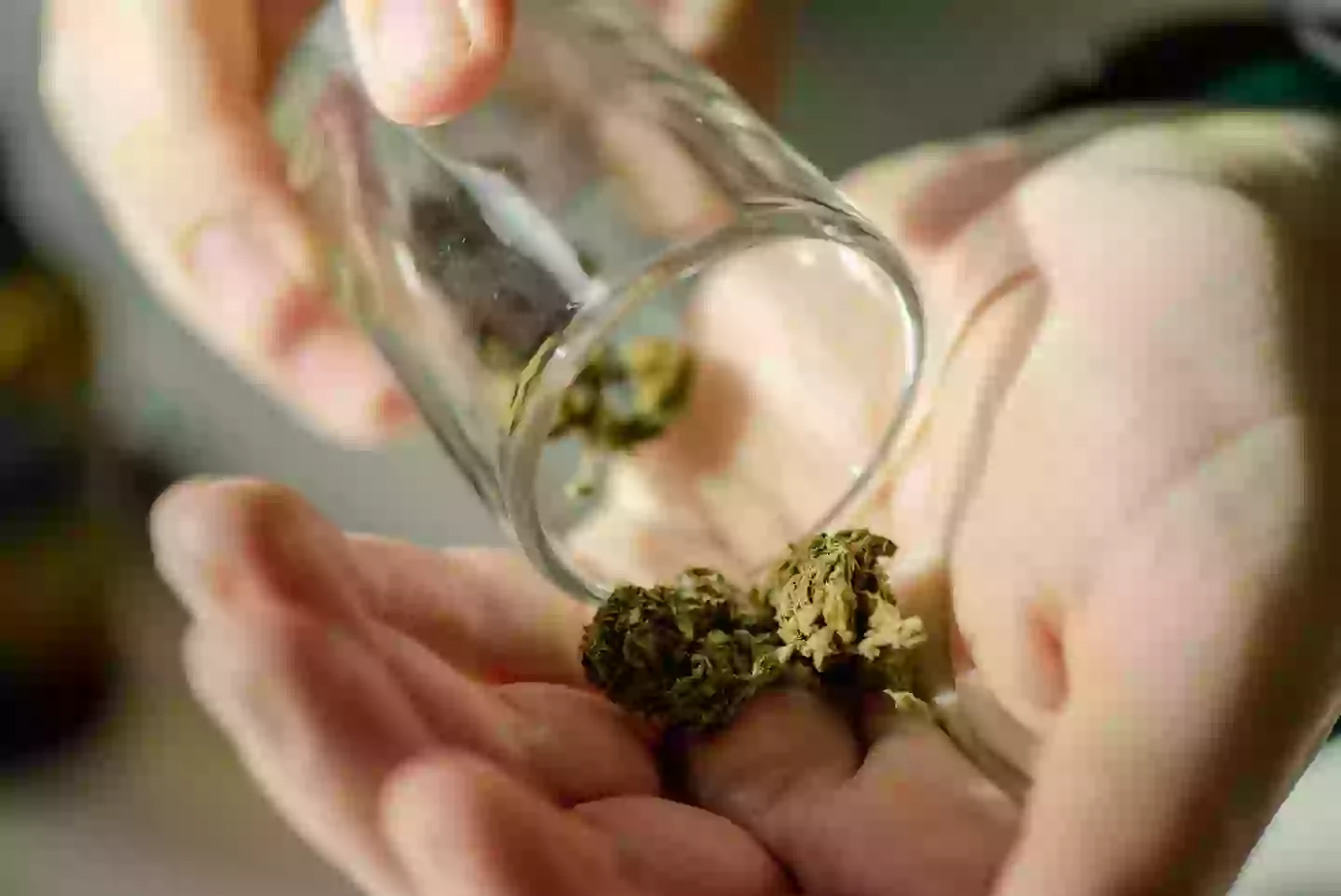
The Republican leader is said to be ‘looking at’ possibly switching marijuana from a Schedule I drug to a Schedule III drug (Emilija Manevska/Getty Images)
Which US states is marijuana currently legal in?
States where marijuana is fully legal:
- Alaska
- Arizona
- California
- Colorado
- Connecticut
- Delaware
- District of Columbia
- Illinois
- Maine
- Maryland
- Massachusetts
- Michigan
- Minnesota
- Missouri
- Montana
- Nevada
- New Jersey
- New Mexico
- New York
- Ohio
- Oregon
- Rhode Island
- Vermont
- Virginia
- Washington
States where marijuana is legal for medical purposes only:
- Alabama
- Arkansas
- Florida
- Georgia (CBD oil only)
- Hawaii
- Indiana (CBD oil only)
- Iowa (CBD oil only)
- Kentucky
- Louisiana
- Mississippi
- New Hampshire
- North Dakota
- Oklahoma
- Pennsylvania
- South Dakota
- Tennessee (CBD oil only)
- Texas
- Utah
- West Virginia
- Wisconsin (CBD oil only)
- Wyoming (CBD oil only)

Author: mscannabiz.com
MScannaBIZ for all you Mississippi Cannabis News and Information.
Mississippi Cannabis News
D.C. board rejects ANC 5A challenge to new medical cannabis retailer
Published
3 days agoon
September 12, 2025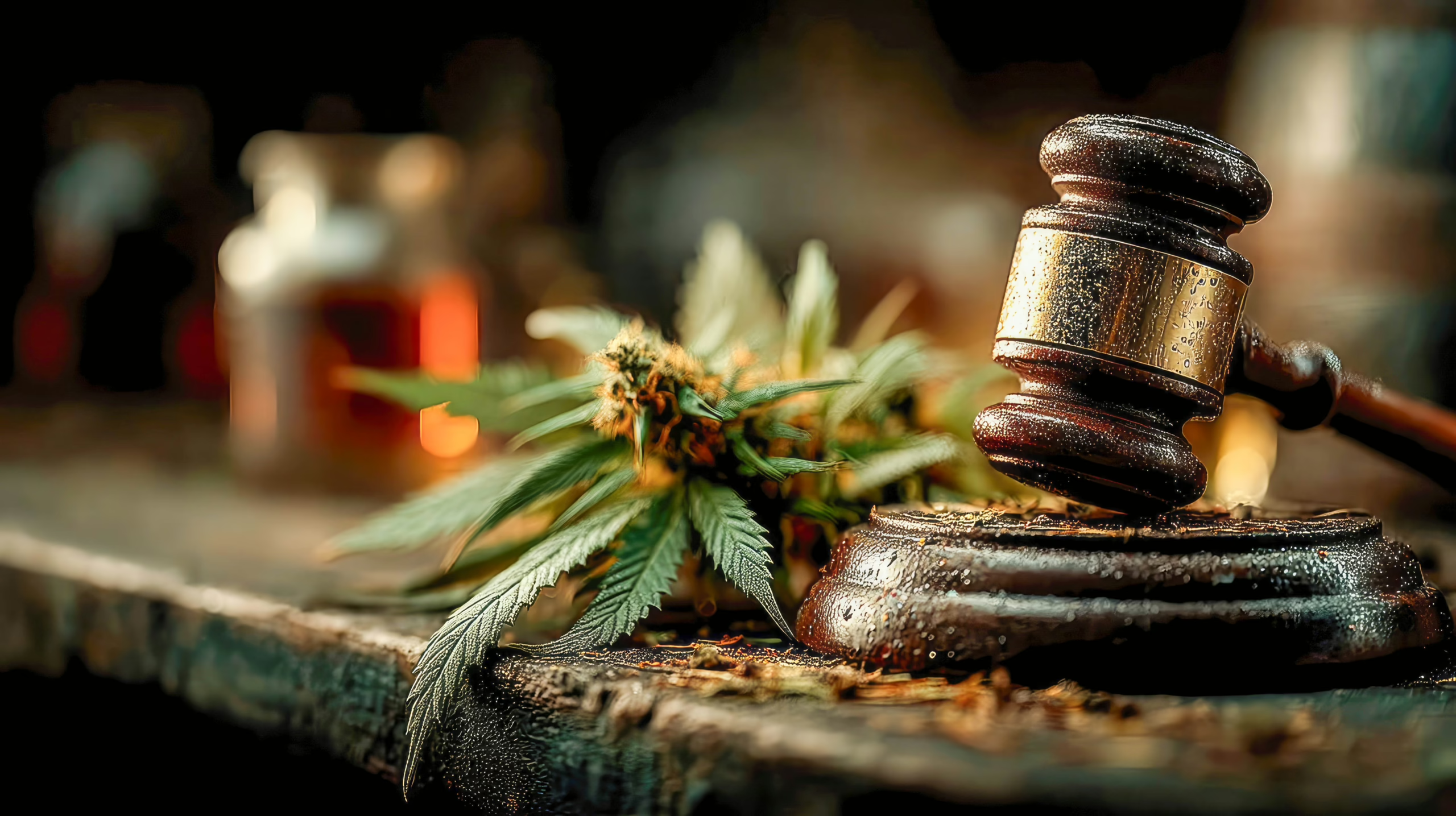
D.C. board rejects ANC 5A challenge to new medical cannabis retailer in Ward 5
The D.C. Alcoholic Beverage and Cannabis Board has rejected ANC 5A’s bid to reinstate its protest against a new Clinical Solutions medical cannabis dispensary in Ward 5, ruling that the ANC’s objections about daycare proximity and safety lacked the specific statutory grounds required to proceed; the license application remains on track, though the decision can still be appealed.
- Alt Sol was featured by wtop News.
- Catch up on today’s ABC Board meeting: watch, agenda.
- Sept. 24, Black Cannabis Week’s D.C. event, “From Prohibition to Policy.”
- A GOP-led House committee is advancing a bill to repeal Washington, D.C.’s Second Chance Amendment Act—which automatically expunges past cannabis possession records—framing the move as part of a broader “restoring law and order” initiative.
Workers protest at Maryland dispensary grand reopening over labor disputes
Cannabis workers and community members protested outside The Apothecarium’s grand reopening in Cumberland, Md., on Sept. 5, alleging the company engaged in union-busting and stalled contract negotiations since employees voted to unionize last year. UFCW Local 27 says workers are demanding fair pay and just cause protections, while the company has not yet issued a response.
Virginia’s 2025 gubernatorial race may decide future of legal cannabis market
Over half of Virginians have used cannabis, but the state currently lacks a legal retail market, though a bipartisan commission is studying its potential and the issue is expected to hinge on the 2025 gubernatorial election. Democratic candidate Abigail Spanberger supports establishing a regulated retail market to boost revenue and public safety, while Republican nominee Winsome Earle-Sears opposes legalization, citing cannabis as a gateway drug.
ICYMI: D.C. Dispensaries Boom, Trulieve Expands, Virginia Cannabis Hits a Turning Point
East Coast Roundup
Once a dominant force in Massachusetts‘ cannabis industry, Fitchburg-based Rev Clinics supplied products to approximately 75% of the state’s dispensaries. However, the company has faced significant challenges leading to its collapse.
A CBD shop in Connecticut shut down following allegations of illegal cannabis sales. The owner has agreed to a settlement.
New York’s licensed cannabis sales surpassed $2.09 billion, with over $1 billion generated in 2025 alone, indicating a robust and expanding market despite market turmoil.
The New York State Office of Cannabis Management announced the transition to the Metrc system for tracking cannabis from seed to sale will start in 2026.
Delaware’s recreational cannabis market achieved $7.3 million in sales during its inaugural month, signaling a strong consumer demand.
The Massachusetts Attorney General certified 44 ballot proposals for the 2026 election, including one aiming to repeal the state’s 2016 law legalizing recreational marijuana sales. This proposal, led by Sudbury resident Caroline Alcock Cunningham, seeks to shut down recreational dispensaries and impose civil penalties for public possession exceeding one ounce.
Culture & More
A new report highlights a significant rise in cannabis use among Americans aged 65 and older, with a 46% increase between 2021 and 2023.
USF Credit Union has introduced ‘Verde,’ a cannabis banking program aimed at providing financial services to the legal cannabis industry in Florida.
A new study found that THC can reach the human egg and may affect female fertility. Women who had THC in their follicular fluid showed a small increase in egg maturity but a lower rate of healthy embryos.
Around the Country
Mississippi’s medical cannabis program is expanding rapidly, with an average of 50 new patient cards issued daily. As of August 2025, the state has approximately 50,000 active cards, up from 40,000 in June 2024.
Texas retailers are relieved after the state legislature failed to pass a ban on THC products during the second special session. Despite this, Lt. Gov. Dan Patrick remains committed to a total ban, citing concerns over youth access.
California’s use of drones to monitor illegal cannabis cultivation led to unintended consequences, including the targeting of residents without cannabis operations. In Sonoma County, drone surveillance resulted in fines, evictions and legal battles for individuals who had no cannabis involvement.
From the swamp
Former Trump advisor Kellyanne Conway is reportedly a strong proponent of rescheduling cannabis, according to a GOP congressman. Her support adds a notable voice to the ongoing debate over federal cannabis policy reform.
OPINION: A Washington Post opinion piece argued that a loophole in the 2018 Farm Bill allows children access to psychoactive hemp-derived substances like delta-8 and delta-10 THC.
Employment Opportunity: DC Licensed Internet Retailer Dispensary Now Hiring. Contact info@getlocald.com to Learn More.

Author: mscannabiz.com
MScannaBIZ for all you Mississippi Cannabis News and Information.

Verano Proposes to Redomicile Parent Company From British Columbia to Nevada

8,000 cannabis plants seized from illegal Bradford grow-op

New York Lawmakers Schedule Psychedelics-Focused Hearing To Discuss ‘Medicinal Value And Risks’ Of Psilocybin

Curaleaf Opens Cannabis Dispensaries in Florida, Ohio

How to Protect Your Outdoor Cannabis Crops From Pests

Feds provide anti-cannabis group a platform to bash legalization (Newsletter: September 15, 2025)

Dozen arrested after south Mississippi bust for illegal sales to underage customers

The Toking Traveler: Why Amsterdam Weed Is Mostly Boof

Arkansas Medical Marijuana Sales Are On Track To Set A New Annual Record

When Cannabis Brands Blur Into Youth Culture, Regulators Notice: Lessons From Tobacco’s Past

Rhode Island Marijuana Dispensary License Application Process Officially Launches

Middle school student found with cannabis in bookbag, Charles County deputies say

Smugglers who brought drugs on an industrial scale into Wales jailed

Attorney pulls out bag of cannabis in NC Supreme Court hearing

WHO AM I? Man wanted for New Bern cannabis store theft

Cannabis packages under scrutiny

California authorities shut down nearly $30 million worth of illegal cannabis operations

A Green Light for Cannabis? Europe Waits While the U.S. Untangles the Red Tape

Move Over, Booze: Weed Drinks Pulled $1.1 Billion in U.S. Sales in 2024

Congressional Committee Votes To Repeal Marijuana Expungements Law In Washington, D.C.

Times Square Welcomed Its Brightest Cannabis Billboard Yet

Smoking Marijuana With A Water Bong Doesn’t Effectively Filter Compounds From Smoke, Study Suggests

A Beginner’s Guide for Watering Cannabis Plants

Massachusetts Lawmakers Approve Bill To Create Psychedelic Therapy Pilot Program

Alert: Department of Cannabis Control updates data dashboards with full data for 2023

Connecticut Appoints The US’s First Cannabis Ombudsperson – Yes there is a pun in there and I’m Sure Erin Kirk Is Going To Hear It More Than Once!

5 best CBD creams of 2024 by Leafly

EU initiative begins bid to open access to psychedelic therapies
New Study Analyzes the Effects of THCV, CBD on Weight Loss

Free delta-9 gummies from Bay Smokes

5 best autoflower seed banks of 2024 by Leafly

Discover New York’s dankest cannabis brands [September 2024]

Press Release: CANNRA Calls for Farm Bill to Clarify Existing State Authority to Regulate Hemp Products

Curaleaf Start Process Of Getting Their Claws Into The UK’s National Health System – With Former MP (Resigned Today 30/5/24) As The Front Man

May 2024 Leafly HighLight: Pink Runtz strain

Local medical cannabis dispensary reacts to MSDH pulling Rapid Analytics License – WLBT

Recreational cannabis on ballot for third time in South Dakota

5 best THC drinks of 2024 by Leafly

Horn Lake denies cannabis dispensary request to allow sale of drug paraphernalia and Sunday sales | News

Mississippi city official pleads guilty to selling fake CBD products

6 best CBD gummies of 2024 by Leafly

Nevada CCB to Accept Applications for Cannabis Establishments in White Pine County – “Only one cultivation and one production license will be awarded in White Pine County”

The Daily Hit: October 2, 2024

5 best delta-9 THC gummies of 2024 by Leafly

Weekly Update: Monday, May 13, 2024 including, New Guide for Renewals & May Board meeting application deadline

PRESS RELEASE : Justice Department Submits Proposed Regulation to Reschedule Marijuana

5 best THCA flower of 2024 by Leafly

People In This State Googled ‘Medical Marijuana’ The Most, Study Shows
Trending
-

 California Cannabis Updates1 year ago
California Cannabis Updates1 year agoAlert: Department of Cannabis Control updates data dashboards with full data for 2023
-

 Breaking News1 year ago
Breaking News1 year agoConnecticut Appoints The US’s First Cannabis Ombudsperson – Yes there is a pun in there and I’m Sure Erin Kirk Is Going To Hear It More Than Once!
-

 best list1 year ago
best list1 year ago5 best CBD creams of 2024 by Leafly
-

 Business12 months ago
Business12 months agoEU initiative begins bid to open access to psychedelic therapies
-

 cbd1 year ago
cbd1 year agoNew Study Analyzes the Effects of THCV, CBD on Weight Loss
-

 Bay Smokes1 year ago
Bay Smokes1 year agoFree delta-9 gummies from Bay Smokes
-

 cannabis brands12 months ago
cannabis brands12 months agoDiscover New York’s dankest cannabis brands [September 2024]
-

 autoflower seeds12 months ago
autoflower seeds12 months ago5 best autoflower seed banks of 2024 by Leafly

